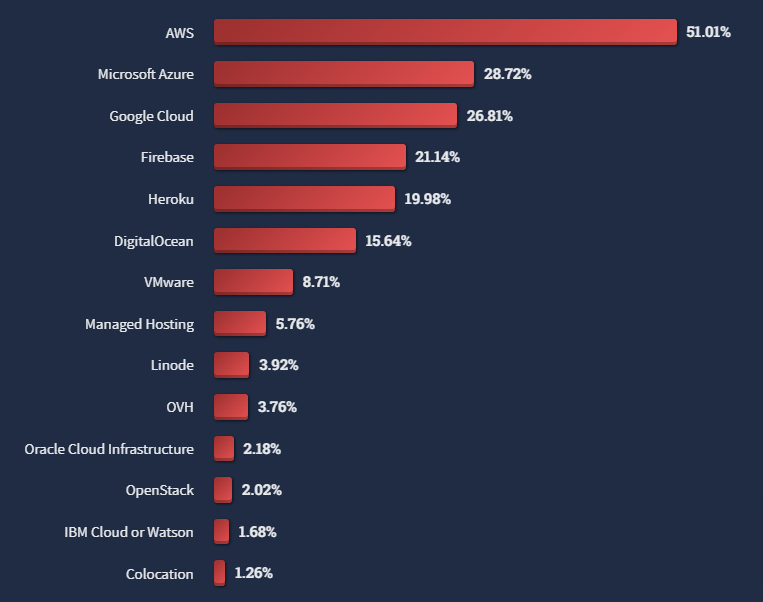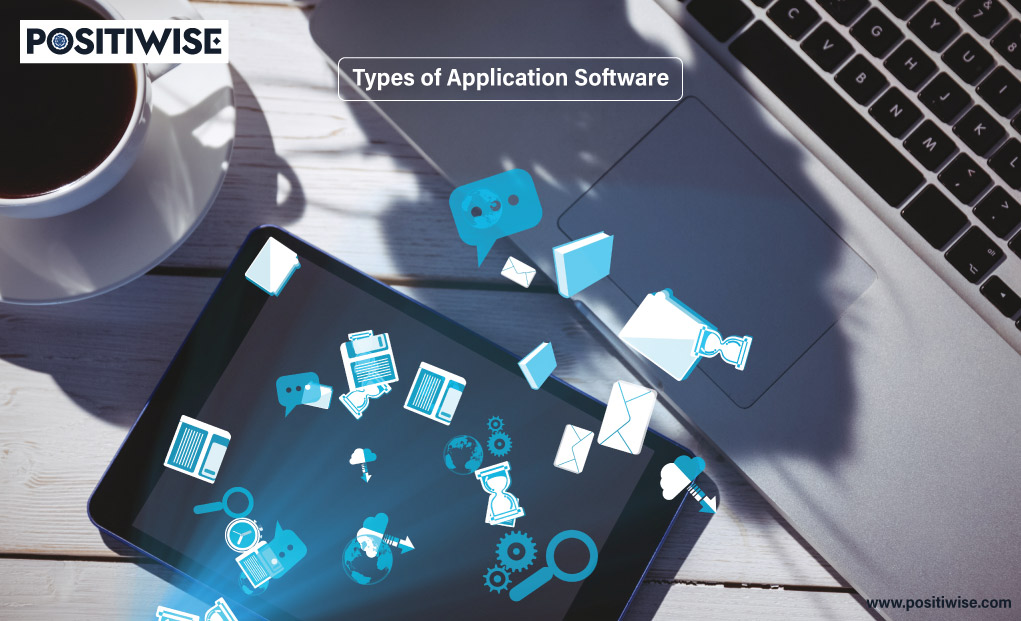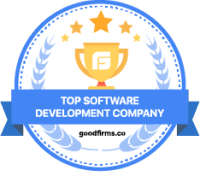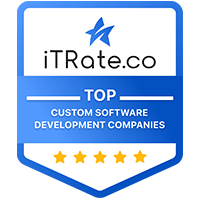Quick Overview:
Cloud application development has spread through the IT development industry like wildfire. Thanks to its ease of accessibility, users can now carry out many tasks online, which has led to the expansion of the cloud services provider industry.
The most trending and advanced technologies like AI, ML, IoT, big data, and others require tons of cloud computational power. That’s where cloud platforms like AWS SDK, Azure, and Google Cloud come into the picture. As per one cloud app development statistic, the global cloud computing market is expected to reach $947.3 billion by 2026.
This will require a robust network of cloud computing platforms. But what do these cloud service platforms mean? Let’s learn what they are and the most popular cloud platforms used in 2022.
What are the Cloud Service Platforms?
Cloud service platforms refer to renting out computing resources to create data centers to build and store information safely over the internet. These data centers are spread across the globe with thousands of networked computers, facilitating the information whenever needed.
As per the Stake Overflow Developer Survey, here are the top trending cloud platforms used in 2022 by professional developers:

5 Most Trending Cloud Platforms Developers Use in 2022
Amazon Web Service (AWS)
AWS is the world leader in offering reliable cloud application development, with over 55% of developers using it. Even though others are trying hard, there’s not a single cloud platform to match AWS, and it’ll remain at the helm for the foreseeable future.
Amazon Inc. was one of the first companies to adopt the cloud computing model and turned it into an opportunity by offering Amazon Web Service development. Since they have been here for the longest, most small to large enterprises choose AWS as their primary cloud platform. Even Netflix uses Amazon Web Services for storing all its content.
Key Features of AWS:
- Fast and reliable cloud services
- Several use cases include cloud migration, operation, content delivery, analytics, mobile app development, etc.
- Pay-as-you-go model to remove or add capacity
- Hybrid capability
- Centralized ecosystem and billing
Microsoft Azure
Even though Microsoft was not the early adopter of the trend, it launched the Azure cloud service in 2010. The company has been at the center of technology and is already a household name, thanks to its flagship product — Windows.
Since Microsoft was one of the most recognized companies and was already involved deep in the cloud layers, it gained the upper hand for offering a trustworthy cloud platform. The core USP of Microsoft Azure is it’s a private cloud provider with a range of other services like service management, hosting, and data storage.
Key Features of Azure:
- Open APIs with a fast NoSQL database
- Spearheaded development of IaaS for quick and easy Azure app development and deployment
- Hybrid cloud services for cloud web and mobile development
- Flexible, cost-effective, and scalable
- Presents efficient data solutions for users
Google Cloud Platform/Firebase
Google Cloud Platform (GCP) and Firebase are cloud service platforms from Google that offer various services like storage, hosting, application development, and others. It provides the same internal supporting infrastructure that Google uses for other end-user products.
Google’s cloud services are relatively new, but they’ve been growing quickly as the company seeks to catch up with Amazon and other competitors. Further, the Cloud Platform suite by Google is evolving based on user demands and staying on top of the competitors to offer better services.
Key Features of GCP/Firebase:
- A suite of cloud application development services
- User-friendly and straightforward interface
- Data analytics and AI to solve problems
- The scaling of the platform is flexible for businesses and individuals
- Can hold a large amount of data
Heroku Cloud Platform
Heroku is a cloud platform as a service (PaaS) that uses containers. Developers use Heroku to manage and deploy modern apps. Our platform is flexible, elegant, and simple to use. It allows developers to get their apps to market quickly.
Heroku is fully managed, so developers can focus on their core product and not worry about maintaining servers, hardware, or infrastructure. Heroku offers services, tools, workflows, and support in polyglot languages that are designed to improve developer productivity.
Key Features of Heroku:
- Salesforce function integration with Heroku data
- Fully managed data services
- Best platform for building modern architecture
- Scalability to meet end-user demands
DigitalOcean
DigitalOcean is a cloud hosting company that released its first cloud services back in 2011. Since then, it has grown to include over 500,000 developers on its cloud platform. DigitalOcean has promoted the idea of using a Solid State Drive to provide a developer-friendly infrastructure.
This will allow their customers to quickly and efficiently transfer projects and increase output. The enterprise clients of the platform can reap the maximum benefits by scaling and executing projects on multiple platforms that too without sacrificing performance.
Key Features of DigitalOcean:
- Intuitive user experience
- Scalable compute products to build and release products faster in the cloud
- Flexible server configurations
- Store and access data quickly from the cloud
- MongoDB, MySQL, Redis, and PostgreSQL database integration
Accelerate Your Business with Custom Software Solutions
Struggling with outdated or ineffective software? Our expert team provides custom systems designed specifically for your business needs. We analyze your operations, build solutions to fit your workflow and integrate with existing infrastructure.
Wrapping Up
So, there were some of the most trending cloud platforms of 2022 that professional developers leveraged. While Amazon sure is at the helm right now, other cloud service providers are giving it stiff competition.
In our view, all these cloud platforms are great and reliable for your different needs. You can select any one of them based on your budget suitability and cloud application development requirements.
Expert in Marketing Strategy and Brand Recognition
Jemin Desai is Chief Marketing Officer at Positiwise Software Pvt Ltd, he is responsible for creating and accelerating the company’s marketing strategy and brand recognition across the globe. He has more than 20 years of experience in senior marketing roles at the Inc. 5000 Fastest-Growing Private Companies.
![Most Trending Cloud Platforms Used in 2022: [Developer's Survey]](https://positiwise.com/blog/wp-content/uploads/2022/07/cloud-computing-and-cloud-technology.jpg)





